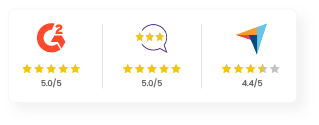Boost Skill Growth in US Businesses with Agentic AI-Powered LMS and LXP

When we think about the future of work, there’s one aspect that really stands out: businesses win or lose based on how quickly they can grow skills.
According to Gartner, 78% of CEOs report that talent scarcity is reaching crisis proportions. And 57% of HR leaders admit that skills shortages are undermining corporate performance. And that’s something we see too up close with clients: enterprises are not simply facing a hiring challenge. They are facing a skills challenge.
But, here’s the bigger shift: this is not only about filling roles anymore. HR leaders worldwide are already planning to redeploy nearly a quarter of their workforce in the near future as AI agents take on routine tasks which means employees are freed up to focus on higher-value work. This change is expected to deliver a 30% productivity boost per employee, according to Salesforce’s latest survey of global HR executives. Even more striking, leaders expect a 327% increase in agent adoption by 2027.
That tells us something important: if employees are not reskilled and upskilled fast enough, the gap between what businesses need and what employees can deliver will only widen.
That’s where Agentic AI-powered Learning Management Systems (LMS) and Learning Experience Platforms (LXP) come in.
How Agentic AI Transforms Skilling
For years, businesses invested in LMS platforms mainly to distribute content and track completions. But today, an Agentic AI skilling platform is more than a repository. It is an intelligent partner that personalizes learning, guides learners in real time, and accelerates skill mastery.
Unlike traditional AI, which often focuses on automating tasks, Agentic AI in skilling platforms brings autonomy and adaptability. Think of it as having a coach embedded in your LMS/LXP, one that doesn’t just assign training but actively nudges, responds, and adjusts to how each person learns.
Here’s what this looks like in practice:
- Personalized learning pathways: No two employees have the same career goals or knowledge gaps. Agentic AI maps content to individual learners and keeps evolving that map based on progress.
- Real-time feedback and guidance: Learners don’t wait for the next assessment to know how they are doing. AI-driven insights offer immediate correction, encouragement, and tips.
- Faster skill acquisition: US companies using AI-driven skilling platforms report higher retention rates because learners feel supported, not overwhelmed.
This kind of intelligent personalization is what turns an LMS or LXP from a static platform into an active engine for skill growth.
Collaboration Meets AI-Driven Skill Growth
We know that people learn best not in isolation, but together. One of the most exciting frontiers of Agentic AI in skilling is its ability to enhance collaboration.
Think of it like this: AI-assisted discussion prompts that spark richer conversations, smart group assignments that pair employees with complementary strengths or even collaborative dashboards that track group performance and spotlight peer contributions.
So, the bottomline is that AI isn’t replacing human connection. It is only amplifying it. By weaving AI guidance into team projects, companies globally are seeing sharper collaboration and measurable improvements in critical thinking, problem-solving, and cross-functional skills.
In my experience, when collaboration is guided by Agentic AI, employees not only grow individually but also create collective momentum that benefits the business.
Organizational Benefits of AI-Powered Social Learning
Skill growth at scale isn’t just about helping individual employees. It’s about lifting the entire organization.
When companies integrate AI-powered LMS/LXP platforms, they see:
Higher engagement: Employees feel seen and supported, leading to stronger participation.
Cross-functional agility: Teams can move beyond siloed expertise to learn from and with each other.
Productivity boosts: With AI reducing manual tracking and reporting, learning leaders spend more time designing impactful programs instead of chasing data.
Stronger ROI: Every training dollar is tied back to measurable outcomes, making it easier to prove impact to leadership.
Implementing AI-Powered Skilling Strategies
Adopting an Agentic AI LMS or LXP is more than just adding new tech to your repertoire. It is about building a culture of continuous learning.
Here are a few ways US businesses can start:
- Choose the right platform. Look for Agentic AI powered skilling platforms that combine autonomy with flexibility.
- Blend human and AI instruction. AI can personalize, but human instructors add empathy and context. Combining the two is where transformation really happens. So, you need to pick a platform that combines and balances the capabilities of both.
- Automate skill mapping. Use Agentic AI to identify gaps across your workforce and align training with future roles, especially as routine tasks shift to AI agents.
- Encourage curiosity. The most successful businesses aren’t the ones that mandate learning but the ones that inspire their employees to seek it out. AI can help by serving up relevant, bite-sized learning in the flow of work.
With this approach, Agentic AI stops being “another tool” and becomes a core driver of workplace learning culture.
Measuring Skill Growth with AI Analytics
Of course, one of the longest-standing challenges in learning and development is proving impact. Traditional LMS reporting (like course completions or attendance) only scratches the surface.
This is where LMS/LXP analytics powered by Agentic AI changes the game.
Instead of measuring inputs, AI helps track outputs and outcomes. It answers questions like which skills are being applied on the job, how are your teams’ capabilities evolving quarter by quarter, what’s the correlation between training programs and business KPIs etc.
With learning impact metrics, businesses finally connect training to performance. I have, in fact, seen that enterprises that use AI analytics to identify training modules were able to improve sales productivity, reduce error rates and even accelerate their project timelines.
Parting Thoughts
The talent shortage in the US isn’t going away anytime soon. But that doesn’t have to be a crisis, it can be an opportunity.
With Agentic AI LMS and LXP platforms, your business no longer has to just deliver courses in the name of skilling and training. You can build ecosystems where your employees continuously grow, adapt, and contribute to business success.
By combining personalization, collaboration, and analytics, your organization can make skilling not only more engaging but also measurably impactful.
The future of work belongs to companies that don’t respond to skills gaps but also actively close them. And from what I have seen, Agentic AI is one of the most powerful levers we have to do just that.
FAQs
- How does an Agentic AI-powered LMS or LXP improve skill growth in US businesses?
Agentic AI goes beyond content delivery by personalizing learning pathways, offering real-time feedback, and guiding collaboration. For US businesses, this means faster skill acquisition, higher employee engagement, and measurable improvements in productivity. Unlike traditional LMS platforms, Agentic AI LMS and LXP solutions act like intelligent learning partners that adapt to each learner’s needs and business priorities.
- What role do LMS analytics and learning impact metrics play in AI-driven learning?
Traditional metrics like course completions don’t reveal whether employees are actually applying skills on the job. Agentic AI-powered LMS analytics track real outcomes—such as improved sales performance, reduced error rates, or accelerated project timelines. These learning impact metrics allow US companies to align skilling with strategic goals and prove ROI on training investments.
- Can Agentic AI LMS platforms support both instructor-led and virtual instructor-led learning?
Yes. Modern Agentic AI LMS and LXP platforms seamlessly integrate Instructor-Led LMS (ILT) and Virtual Instructor-Led LMS (VILT) sessions with AI-driven personalization. This blended approach ensures employees benefit from both human instruction (empathy, context, mentoring) and AI capabilities (adaptive pathways, automated skill mapping, personalized recommendations).












